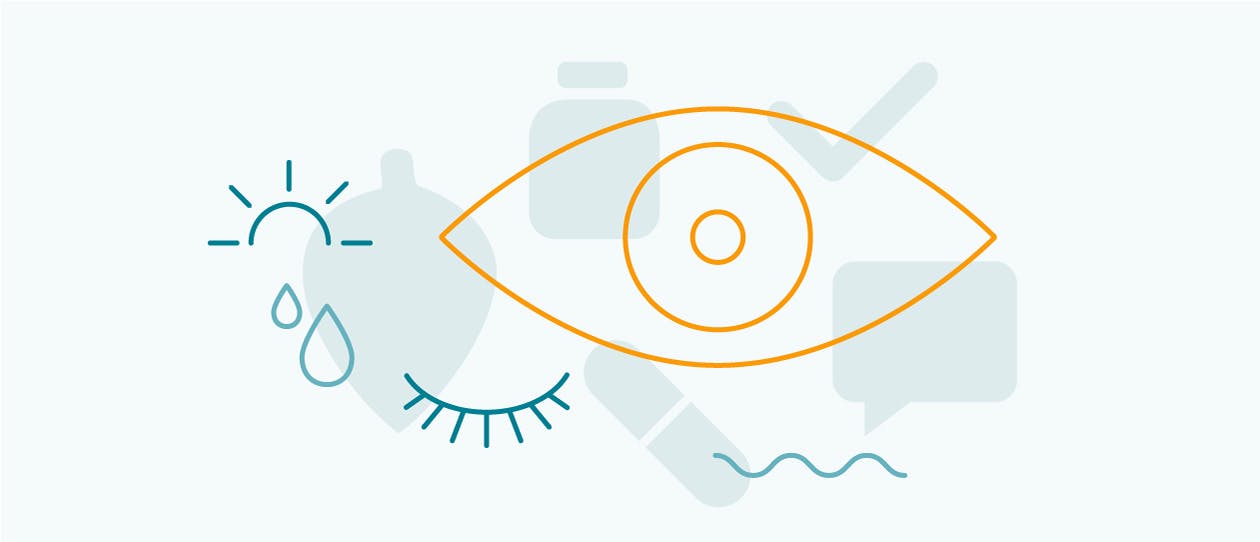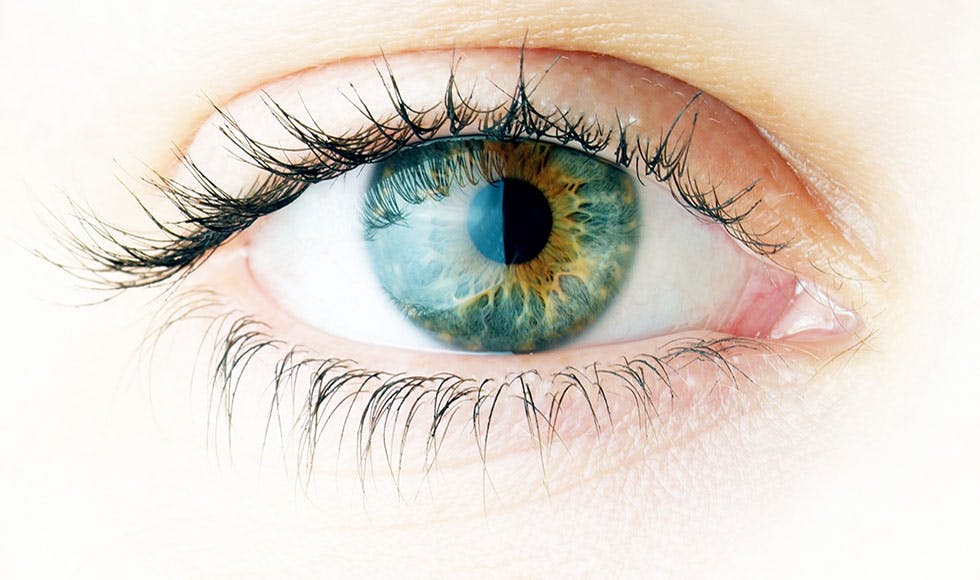
- Health hub/
- Eye health/
- Eye Strain: Symptoms, Causes & Relief


- Temporary difficulty in focusing on distant objects
- Blurred vision
- Headaches
- Sore, red, watery or dry eyes
- Twitching of the eyes may also occur
Eyes become tired from focussing on the same point for an extended period of time, and in particular, focussing on an object at close distance (e.g. a book or sewing) for a long time is likely to cause eye fatigue, especially if the lighting conditions are poor.
Long sessions of computer work are especially likely to cause eye strain due to the combination of prolonged focussing, the illuminated light of the screen and our tendency to blink less frequently when doing this kind of work.
Visual acuity (sharpness) declines and the functioning of the muscles of the eye become weaker as we get older, and consequently the eyes become less responsive to light and are slower to react in dark conditions. Under these circumstances, we need brighter light and greater contrast between light and dark in order to be able to focus properly, especially for extended periods of time.
- The eyes are particularly susceptible to free radical damage, and taking antioxidant nutrients may help to maintain eye health and vision
- Key antioxidants for eye health include zinc, copper, and vitamins C and E
- The carotenoids lutein and zeaxanthin provide antioxidant functions in maintaining eye health. In particular, they help to improve and protect the health of the macular region by increasing the density of the macular pigment, which absorbs harmful blue light and reduces oxidative damage. They are associated with healthier eyes and the retention of visual sensitivity and acuity (sharpness).
- Higher intake of omega-3 fatty acids is also associated with better macular health. DHA is especially important, as it is an essential building block for light receptors that are required for eyesight.
- Sometimes eye strain is an indication that you need to wear glasses or that the prescription of your glasses needs to be changed. Visit your optometrist for a check-up.
- Consuming high levels of the carotenoids betacarotene, lutein and zeaxanthin (found in carrots, pumpkin and leafy green vegetables) may help to maintain your vision and eye health. Smokers should avoid high doses of betacarotene.
- Have regular rest periods when reading or using a computer and allow your eyes to focus on far-away objects for a while. Try to blink regularly too.
- Set your desk up so that your computer monitor is at eye level or slightly lower, and is tilted in a way that eliminates glare. Don’t put your computer in a place where light from a window shines directly on to your face or your monitor.
- If you are experiencing headaches or blurred vision, it is important that you consult your healthcare professional so that the cause of the symptoms can be properly identified.
- See your optometrist or ophthalmologist every 1-2 years for a check-up.
- If you experience any change in vision or the appearance of the eyes, see your healthcare professional immediately. You should also seek professional advice if your contact lenses become uncomfortable, or if you experience a cut or blow to the eye.




